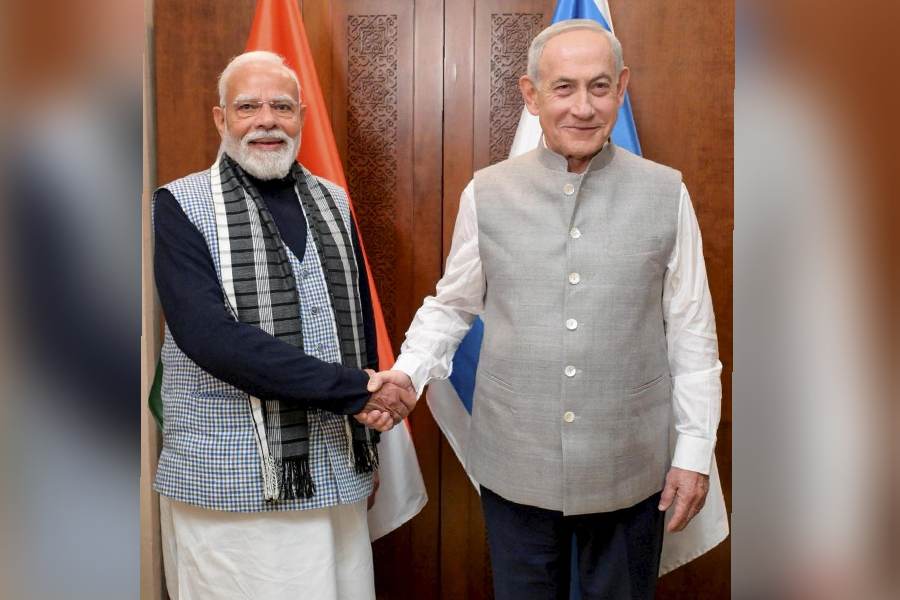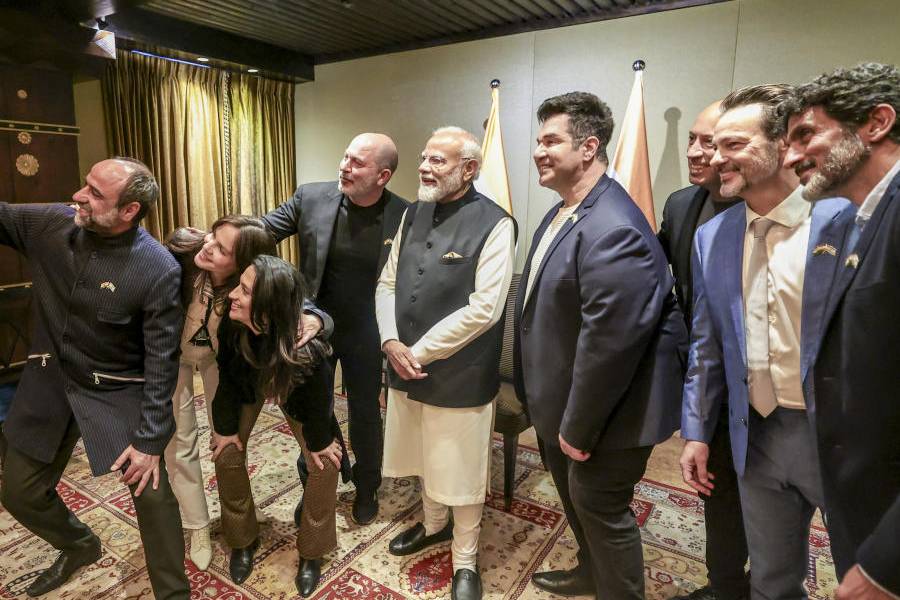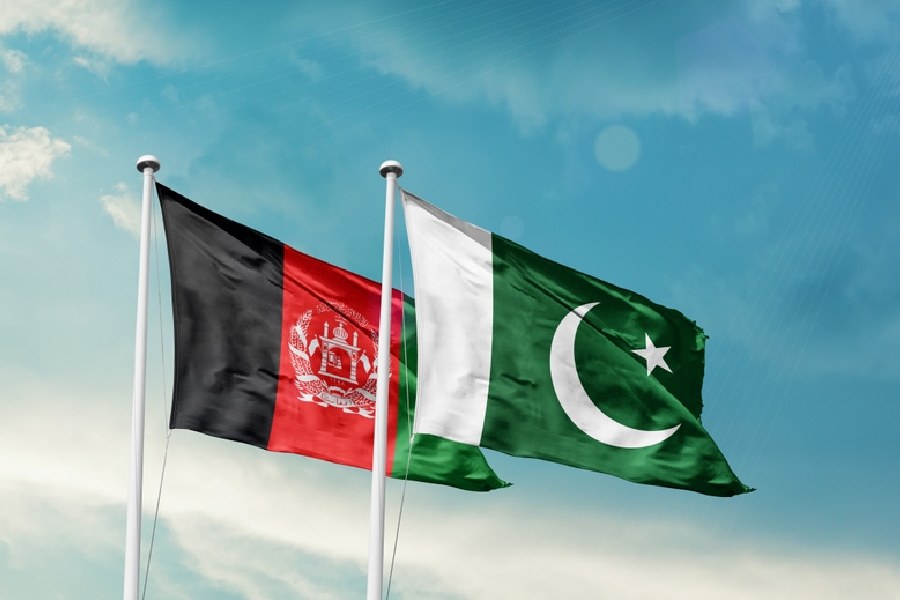 |
| Two customers enjoy lunch at Chakluk Hotel on AM Road. Picture by UB Photos |
May 18: They call themselves the specialists of traditional Manipuri cuisine in Guwahati. Their eromba, sinju and chareng now appeal to a cross-section of taste buds, and going by the “cosmopolitan presence” during peak hours, the thaalis they offer are up there among the most sought-after in town.
Be it Chakluk, Lakshmi, Emoinu, Imphal or the over three-decades-old Geetanjali, the oldest in the vicinity, the rice hotels, as they are christened, in the famous “food corner near Manipuri Basti”, have withstood the test of time. “Things have changed since we started in 1990. At that time, we had to open very early in the morning to cater to night bus passengers, particularly from Manipur or Nagaland. Now, we open by 7am and by lunchtime, the place is chock-a-block with office-goers, college students and families. What’s encouraging is that we now have a section of loyal non-Manipuri clients,” M. Barim Singh, co-owner of Chakluk Manipuri Rice Hotel, said.
Chakluk in Manipuri means a thaali and Singh is particular about his offerings. As a matter of fact, he has never compromised on the original recipe.
“More often than not, we get the rice ordered from Manipur. Eromba, a traditional dish made of fermented hidol fish and vegetables, is what people come here for. Sinju, a salad that has cabbage, thanbou (lotus stems), chillies in it, is another attraction. Then there is ooti (a curry comprising green or dry peas), chareng (a fish curry), manikha (a mix of brinjal and fish oil), chambut (boiled papaya), kangsoi (a boiled item comprising dry fish) and, of course, a mustard chutney,” he said.
All this for just Rs 70 a thaali with fish curry, and as low as Rs 40, without it. “That’s value for what you shell out. Thanks to my official tours to Manipur where I got accustomed to eromba and chareng, I make it a point to drop by Chakluk, though quite far from my Six Mile office, at least twice a month for lunch. The offerings here are sumptuous and the thaali similar, if not on a par, with what I get in Imphal,” said Pranab Das, a young professional.
The mantra is simple — stick to basics. “We do not use onions in our dal and curries. Instead, we use a leaf called enam. We have adhered to the original recipe and I think our clients acknowledge this,” Singh said.
Rajib Singh, who now runs the new-look Geetanjali Hotel, situated in the nook opposite Apsara cinema, with his elder brother Binod, said, “We were the first Manipuri food specialists in town. Back in 1979, my father Rabindra Singh had set up the hotel serving traditional cuisine. Our clients, at that time, were primarily Manipuris. But now there are more non-Manipuris at the tables during the peak hours.”
Imphal Hotel, a few yards away, however, has adapted with the times. “We serve traditional fare for lunch and dinner. But unlike our counterparts, we have fast food such as chow, chicken rolls and momos to break the monotony in the evenings,” said manager Ranjit Deb.
Rumi Konwar, a resident of Bhangagarh, had a misconception about Manipuri food till she tried it first hand. “I thought it was spicy till I tasted it. It’s healthy as only green chillies, as opposed to masala, are used. Now, whenever I do not feel like cooking a meal after work or get bored of momos and rolls, I frequent the rice hotels of Manipuri Basti. Eromba is my favourite. So much so that I got a Manipuri friend to pass on the recipe the other day,” she said.










